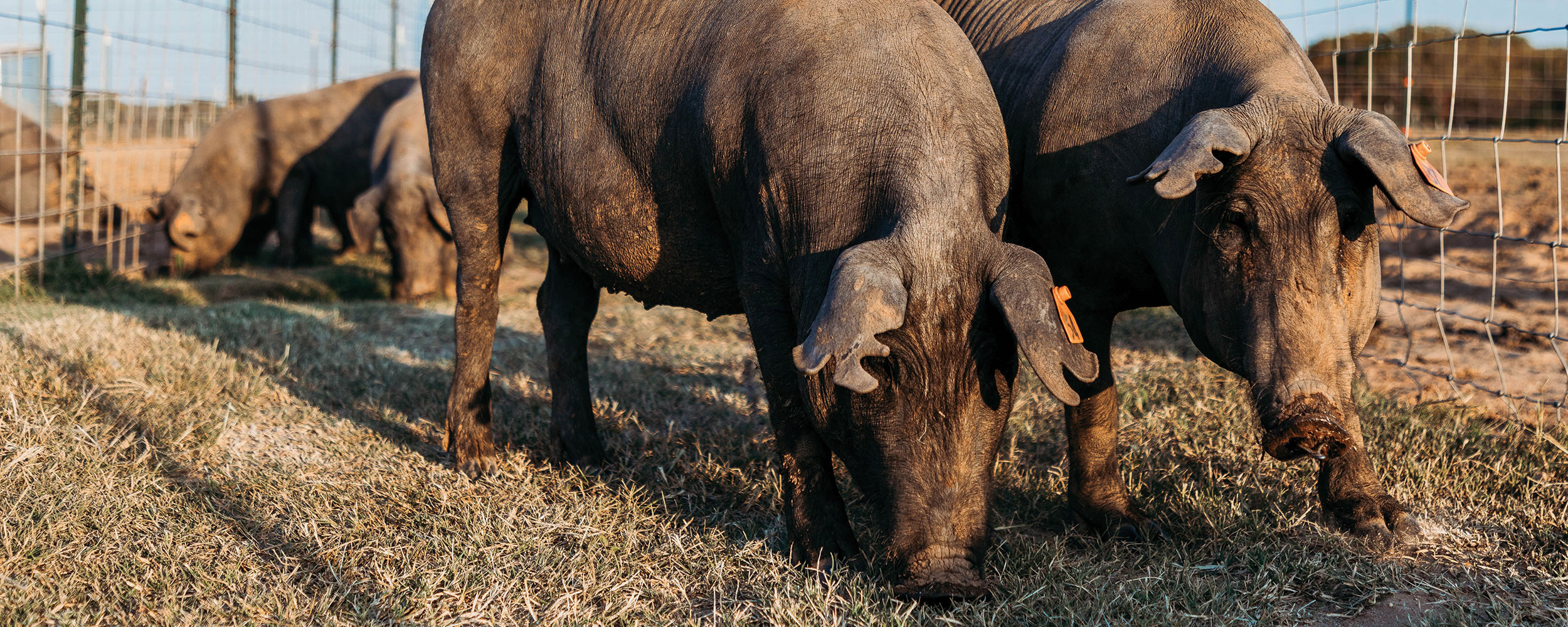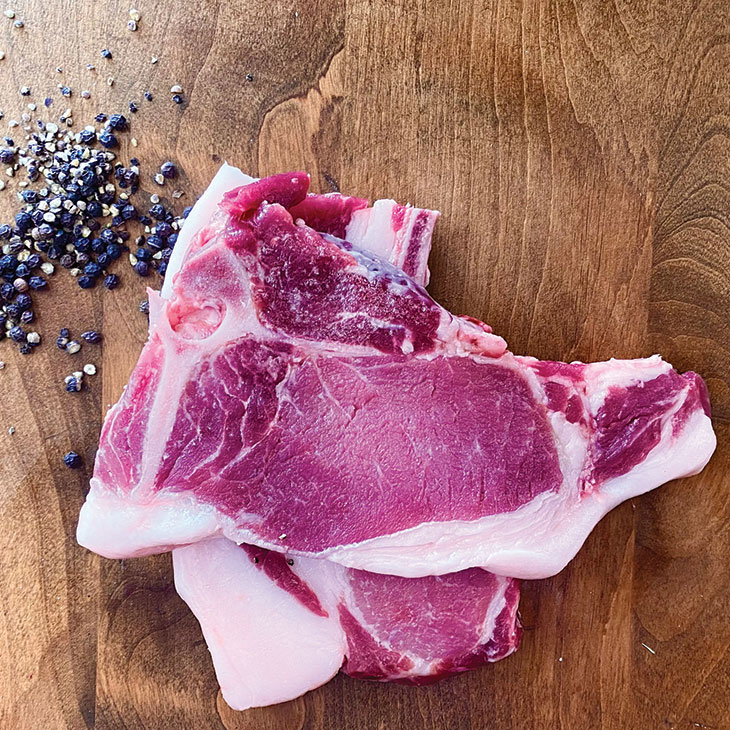
Taste The Iberico Difference
Friday, December 17, 2021
Media Contact: Samantha Siler | Communications and Marketing Manager | 405-744-2977 | samantha.siler@okstate.edu
November 2018 changed the direction of one Oklahoma State University alumna’s life.
An unexpected phone call allowed Paige Dowdy to start her own business — Scissortail Steading — and bring a new delicacy to the Oklahoma agricultural industry.
Her swine operation, located in Glencoe, Oklahoma, now is home to more than 250 head of Iberico pigs.
“In December 2019, we imported 28 Iberico pigs from Portugal, which is where they originate,” said Dowdy, who earned her bachelor’s degree in animal science in May 2019. “My plan is to build up the herd and educate people on the rarity of the pigs.”
The Iberico breed is unlike conventional swine breeds for many reasons, Dowdy said, but the main differences are the pigs’ unusual appearance, the meat’s unique look and flavor, and the amount of time the pigs need to reach processing weight.
While other swine breeds can reach the 275 pounds needed to process in a few months, Iberico pigs take about one year, she added.

“Their meat is very special,” said Keegan Padgett, OSU animal science junior and employee at Scissortail Steading. “They are considered the ‘wagyu’ of the pork industry.
“Iberico meat is fattier than regular pork and more of a red color instead of the traditional pinkish color,” he said.
Iberico meat is tender and flavorful like a steak because the meat is heavily marbled, Padgett said.
“The meat has a high fat content,” Padgett said. “Including a thick, soft fat layer. When you cook the meat, the fat begins to disintegrate.
“The fat is so sensitive that even warm hands can start to disintegrate the layer of fat,” he added.
Iberico meat is processed like traditional pork, allowing for the typical cuts of pork chops, bacon, ham and summer sausage.
“My favorite cut is the pork chop because the taste is like no other,” Padgett said. “It tastes like a pork chop and a steak put together all in one.”
Scissortail Steading is the only Iberico swine operation in Oklahoma. However, several Iberico facilitiesoperate in California, Florida and Texas, Dowdy said.
Dowdy said the limited number of Iberico swine operations in the U.S. means the meat from these pigs is a delicacy for consumers.
“All of the meat that comes off the farm is certified by the Made in Oklahoma Coalition,” Padgett said.“ This means our meat and company is promoted and advertised by the Made in Oklahoma Coalition.”
When the Iberico pigs reach their target weight, Scissortail Steading employees take the butcher-ready hogs to the Walke Meat Co. in Claremore, Oklahoma, to be processed.

The challenge of processing the hogs is not the largest hurdle to overcome, Padgett said.
“The main hurdle we have had to get over when marketing the meat has been educating people on why to pay the extra premium,” said Mary Clare, Scissortail Steading sales coordinator.
Each week, Scissortail Steading employees attend the Rose District Farmers Market in Broken Arrow and the Edmond Farmers Market to promote their meat and educate people, Clare said.
“At the farmers market, we cannot cook the meat for people to taste, so we bring our different variations of summer sausage for people to try,” Clare said. “This is one of our best ways to show people the difference because they can actually taste it.
“Education is key to our product,” she said. “It is new and unique. Paying the extra cost for a different pork product is hard to get your head around.”
By allowing the public to see and taste the differences in Iberico pork, customers can observe the quality firsthand, she added.
“Once the general consumer understands they are getting what they pay for with Iberico meat, they are willing to pay extra cost,” she added.
The public also can purchase the meat at scissortailsteadingmeats.com.
“We have the ability to ship to all 48 of the continental states,” Clare said. “The end goal is for the pork industry to recognize Iberico pork in the way the beef consumers see Waygu.”
Story By: Derrick Wood | Cowboy Journal
